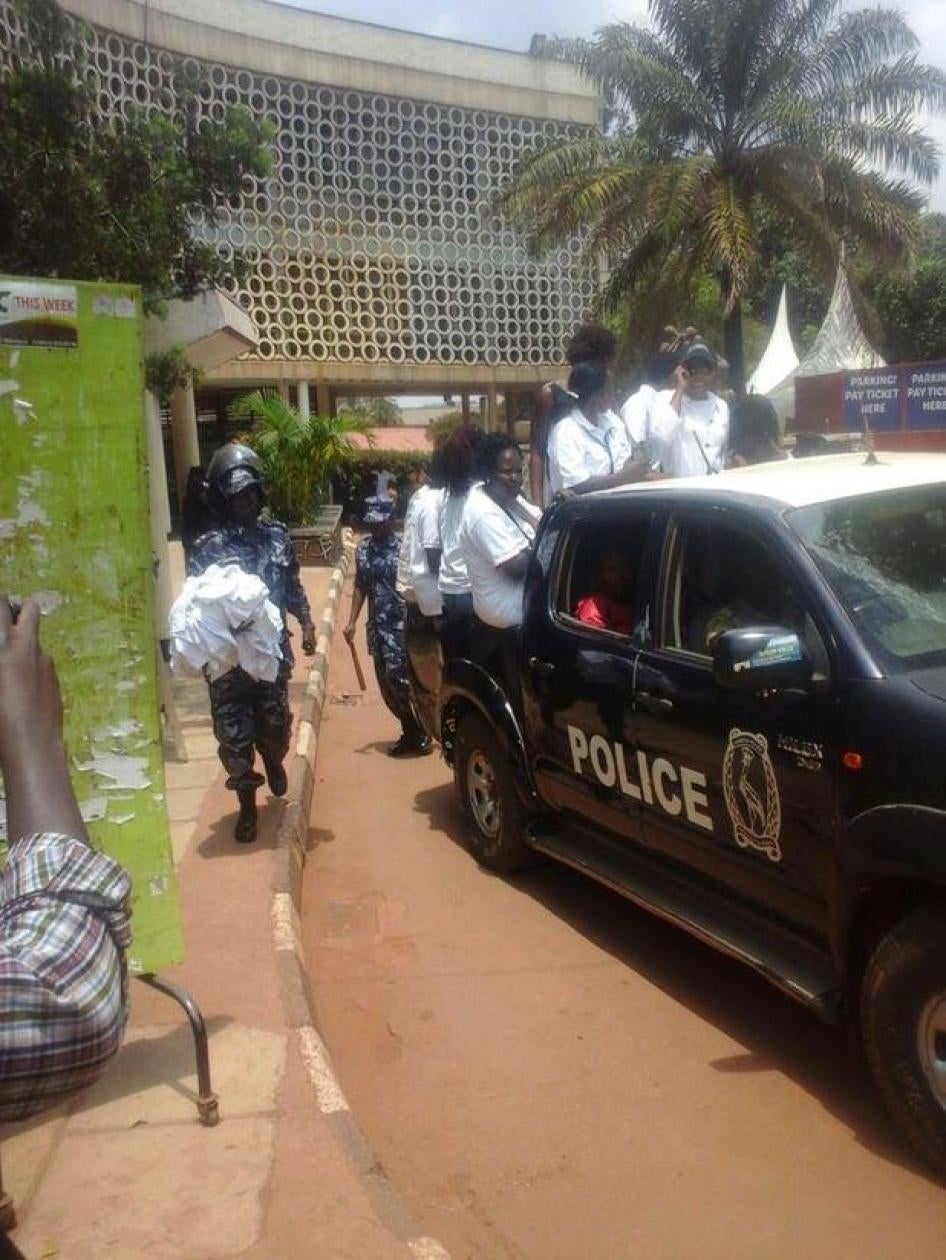Police in Uganda detained 25 women who had peacefully gathered in the capital Kampala to pray and present a petition to the speaker of parliament on Tuesday. The women oppose a legislator’s pending proposed constitutional amendment that would remove the age limits for judges and the term limits for Electoral Commissioners. The women were eventually released without charge.
Although disgraceful, Tuesday’s events were calm compared with security forces’ brutal and brazen conduct during elections in February. Police beat journalists trying to cover the opposition as video cameras rolled, used live ammunition to scatter those awaiting results in Kasese – killing a 13-year-old boy – and barricaded the opposition presidential candidate in his home for more than a month.
Still, the police’s quick action to break up the women’s rally indicates the fight over Uganda’s political future is far from over. It is very likely to be scarred by rights violations at every turn.
The women argue that recent efforts to amend the constitution may be a “decoy” to remove presidential age limits. Their argument has merit. President Museveni has been in office since 1986. He cannot run for president again in 2021, unless presidential age limits in the constitution are scrapped. So police, who consistently target demonstrators deemed “anti-government,” had motive to quickly squash the protest.
Opposition parties have only been allowed to exist legally in Uganda since 2005. The apparent cost of such a basic concession was that parliamentarians removed term limits from the constitution, paving the way for President Museveni to remain in office after two decades.
But despite the existence of an opposition, elections in Uganda leave much to be desired. Violence and intimidation have marked most elections. This year, local observers declared the February election neither free nor fair. Former Nigerian President Olusegun Obasanjo, who chaired the Commonwealth’s observers, noted that, “the fusing of the state and ruling party in Uganda… had deepened, with a consequent adverse impact on political freedoms and further undermining any efforts to level the playing field for these elections.”
Repression shouldn’t become the norm as debates about constitutional amendments percolate in Uganda. Everyone should have the freedom to peacefully gather and express their views, free from government intimidation and arrest.
Violating these women’s rights to free assembly is just the most recent sign of Uganda’s slide towards becoming an electoral dictatorship – where elections occur but “recycle political elites and bestow on them a degree of legitimacy.”








